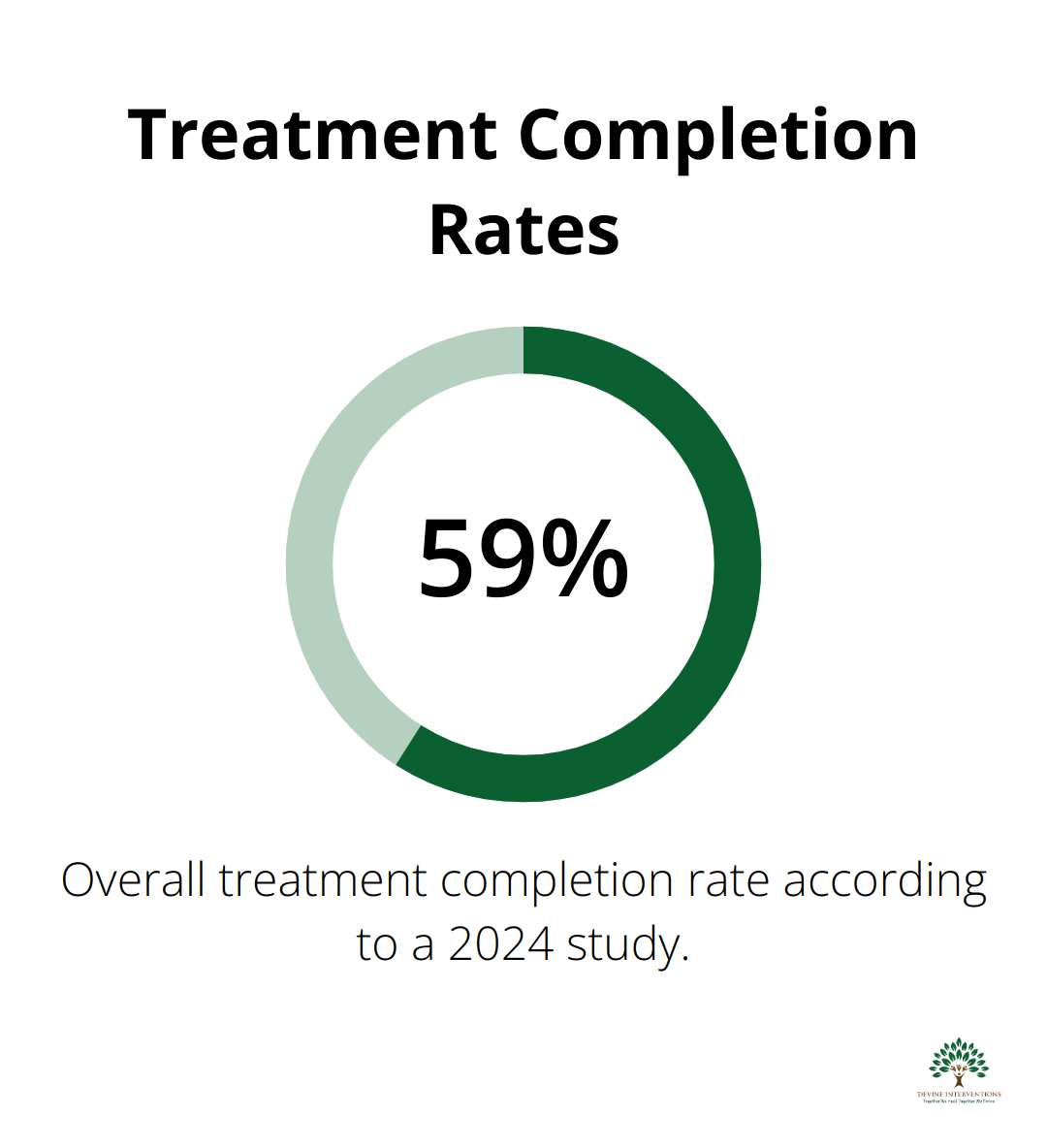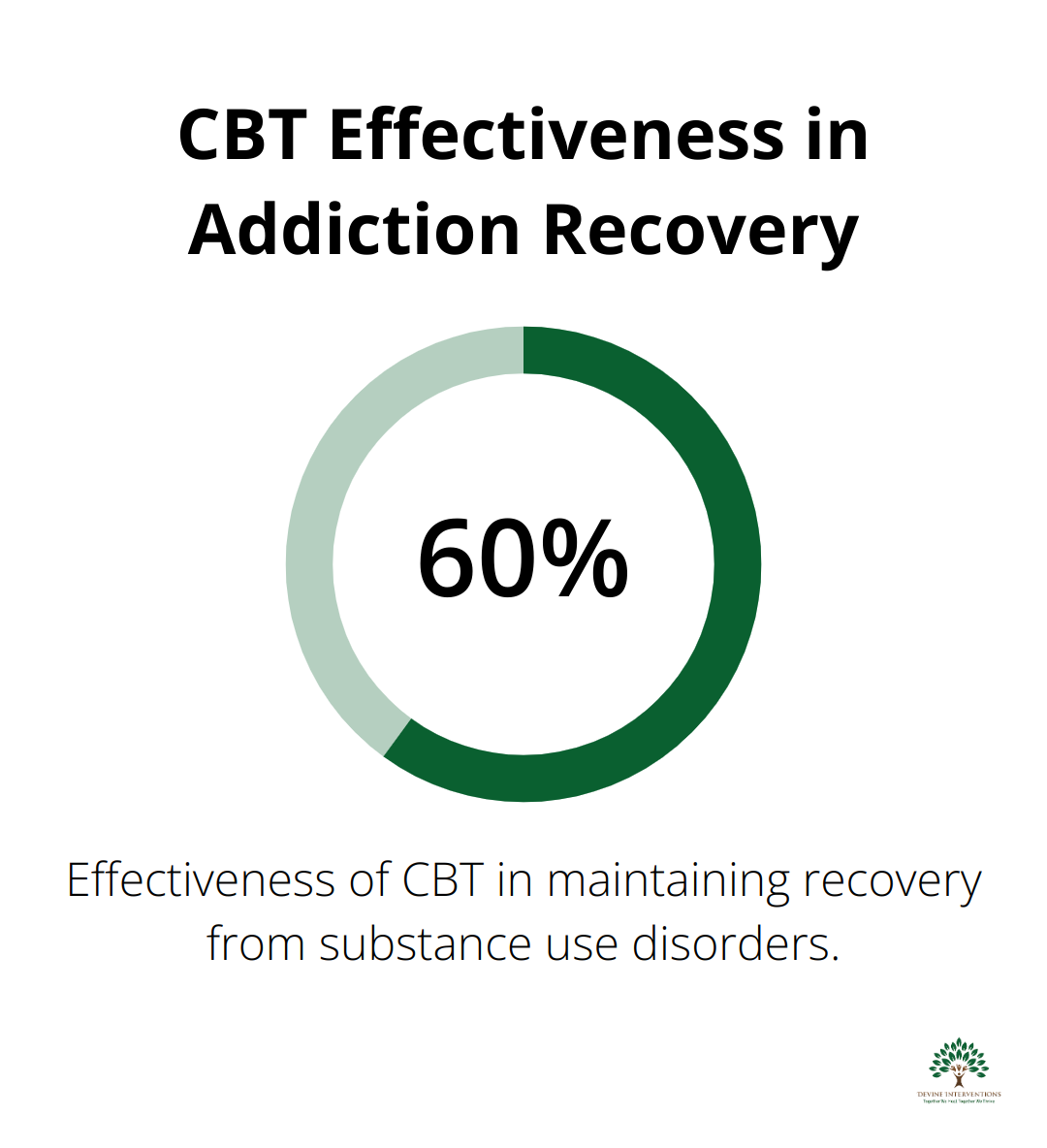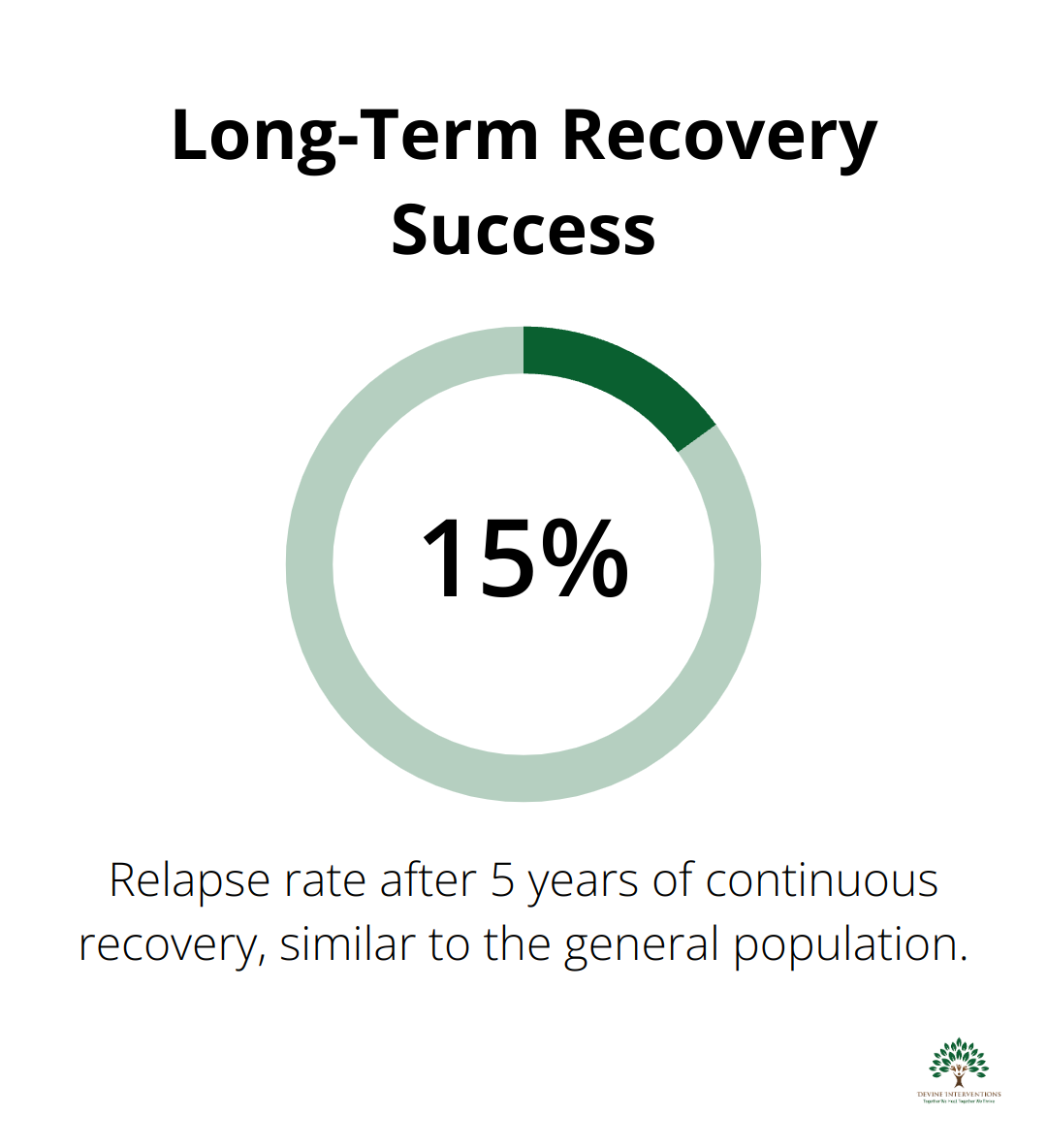Addiction can be a devastating force, affecting not just individuals but entire families and communities. At Devine Interventions, we’ve seen firsthand how proper addiction treatment can transform lives.
Our approach combines evidence-based therapies, personalized care plans, and a focus on long-term recovery to help people break free from addiction’s grip. This post explores the key components of effective addiction treatment and the journey to lasting recovery.
What Is Addiction and How Does It Impact Lives?
The Nature of Addiction
Addiction is a complex brain disorder that affects millions worldwide. At Devine Interventions, we view addiction as a chronic disease that alters both brain structure and function. It manifests as compulsive drug seeking and use, despite harmful consequences, which can lead to unsafe behavior, such as sharing needles or unprotected sex.
The Far-Reaching Effects of Addiction
Addiction doesn’t just impact the individual; it creates waves that touch every aspect of a person’s life. Families often bear the brunt of addiction’s consequences. The National Institute on Drug Abuse reports that children of parents with substance use disorders face a higher risk of developing addiction themselves (a cycle that can persist through generations if left untreated).
Dispelling Common Myths
One prevalent misconception portrays addiction as a moral failing or lack of willpower. This couldn’t be further from the truth. Addiction is a disease that requires professional treatment, much like diabetes or heart disease. Another myth suggests that people can quit anytime they want. In reality, the brain changes caused by addiction make it extremely difficult to stop without help.
The Importance of Professional Help
Professional help plays a vital role in effective addiction treatment. Expert care can make all the difference. Professional treatment provides:
- Medically supervised detox to manage withdrawal symptoms safely
- Evidence-based therapies to address underlying issues
- Strategies to prevent relapse and maintain long-term recovery
The Power of Early Intervention
Early intervention significantly improves recovery outcomes. A 2024 study estimated an overall treatment completion rate of 59%, with experimental studies reporting higher rates of completion than observational ones. The Substance Abuse and Mental Health Services Administration emphasizes the importance of seeking help as soon as you recognize a problem. Don’t wait for rock bottom – reach out for help today.

Overcoming Stigma
Stigma often prevents people from seeking the help they need. It’s important to understand that addiction is a health issue, not a character flaw. Open discussions about addiction and treatment can break down barriers and encourage more people to seek the care they deserve.
As we move forward, let’s explore the key components that make addiction treatment truly effective. Understanding these elements will shed light on how professional care transforms lives and paves the way for lasting recovery.
What Makes Addiction Treatment Effective?
Evidence-Based Therapies: The Foundation of Success
At Devine Interventions, we rely on proven therapies to help our clients overcome addiction. Cognitive Behavioral Therapy (CBT) and Motivational Interviewing stand out as powerful tools in our arsenal. These approaches help clients identify triggers, develop coping strategies, and build motivation for change. Research has shown that CBT can be effective in maintaining recovery from substance use disorders, with about 60% of treated individuals sustaining their progress.

Personalized Treatment Plans: Tailoring Care to Individual Needs
We understand that each person’s journey to recovery is unique. That’s why we create customized treatment plans that consider each client’s specific history, challenges, and goals. This approach might include a mix of individual therapy, group sessions, and family counseling. Our case managers work closely with clients to adjust these plans as needed, ensuring the best possible outcomes.
Addressing Co-occurring Mental Health Issues: A Holistic Approach
Many people who struggle with addiction also face mental health challenges. We provide integrated treatment for co-occurring disorders, which significantly improves the chances of long-term recovery. The Substance Abuse and Mental Health Services Administration is a leading source of population-based statistical data on alcohol, tobacco, drug use, mental health, and other behavioral health information.
Medication-Assisted Treatment: A Game-Changer for Some
For clients dealing with opioid or alcohol addiction, medication-assisted treatment (MAT) can make a significant difference. MAT combines behavioral therapy with FDA-approved medications to reduce cravings and manage withdrawal symptoms. The Substance Abuse and Mental Health Services Administration reports that MAT can improve patient survival rates and increase retention in treatment.
The Power of Community Support
While professional treatment forms the backbone of recovery, community support plays a vital role in long-term success. We encourage our clients to build strong support networks and participate in support groups (such as Alcoholics Anonymous or Narcotics Anonymous). These connections provide ongoing encouragement and accountability, which are essential for maintaining sobriety.
As we move forward, let’s explore what individuals can expect when they embark on their journey to recovery. Understanding the process can help alleviate fears and prepare people for the transformative experience ahead.
What Happens During Addiction Recovery?
Initial Assessment and Planning
At Devine Interventions, we start your recovery journey with a thorough assessment. This process typically lasts 60-90 minutes and covers your mental health history, family dynamics, and current situation. We use this information to create a personalized treatment plan that aligns with your goals and needs.
Our team collaborates with you to set realistic objectives and select the appropriate level of care. This might range from intensive outpatient programs to individual therapy sessions, depending on your specific circumstances.
The Recovery Process: From Detox to Ongoing Support
Medically supervised detox often marks the first step (if needed). This process helps manage withdrawal symptoms safely and comfortably. Research shows that after 5 years of continuous recovery, the relapse rate drops to approximately 15%, similar to the general population.

After detox, you’ll transition into a structured treatment program. This could involve:
- Individual therapy sessions (usually 30 minutes)
- Group therapy for peer support
- Family counseling to heal relationships
- Medication management if appropriate
Throughout your treatment, case managers provide ongoing support, connect you with community resources, and help you navigate challenges.
Building Your Recovery Toolkit
A vital part of treatment involves developing coping skills to maintain long-term sobriety. You’ll learn strategies to:
- Identify and manage triggers
- Handle stress without substance use
- Improve communication in relationships
- Build a healthy lifestyle that supports recovery
Research shows that people who actively engage in developing these skills are more likely to maintain long-term sobriety.
Navigating Challenges and Preventing Relapse
Recovery isn’t always a straight path. Challenges and setbacks form normal parts of the process. We prepare you for these moments by:
- Teaching relapse prevention techniques
- Helping you build a strong support network
- Providing ongoing care and adjusting your treatment plan as needed
Seeking help when you struggle shows strength, not weakness. Our team stands ready to provide support and guidance, even after you’ve completed your initial treatment program.
Every step forward marks a victory, and we support you through each one. Take the first step towards recovery today by reaching out to Devine Interventions.
Final Thoughts
Effective addiction treatment transforms lives. At Devine Interventions, we witness individuals reclaim their futures through our comprehensive care approach. Our evidence-based therapies and personalized treatment plans provide a solid foundation for lasting recovery.
The journey to sobriety differs for each person, but successful treatment profoundly impacts lives. Families reunite, careers flourish, and individuals rediscover their passions. Studies show that after five years of continuous recovery, relapse rates drop significantly (matching those of the general population).
Addiction treatment extends beyond abstaining from substances. It builds a fulfilling life, develops healthy coping mechanisms, and fosters meaningful relationships. If you or a loved one struggles with addiction, help is available at Devine Interventions. Take the first step towards a healthier, happier life today.







